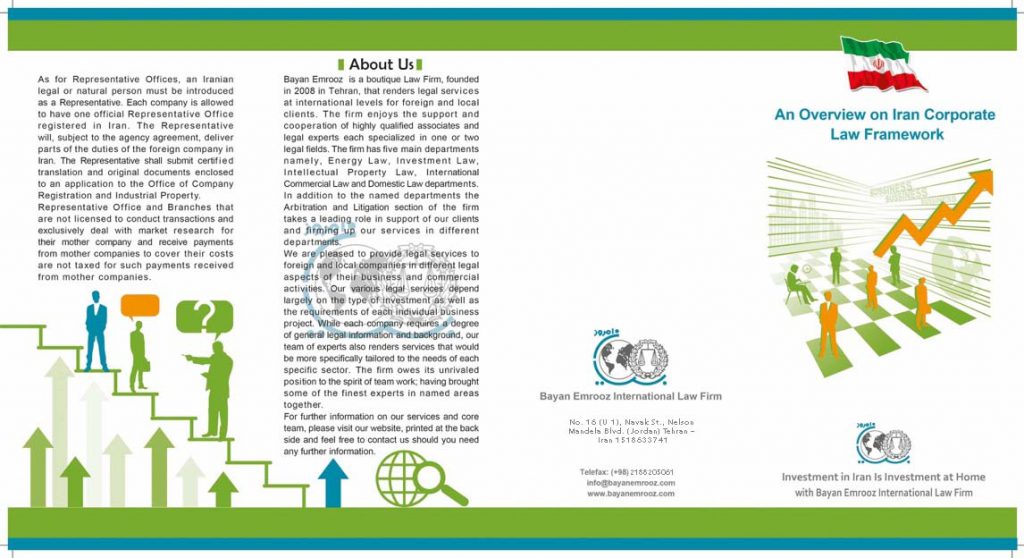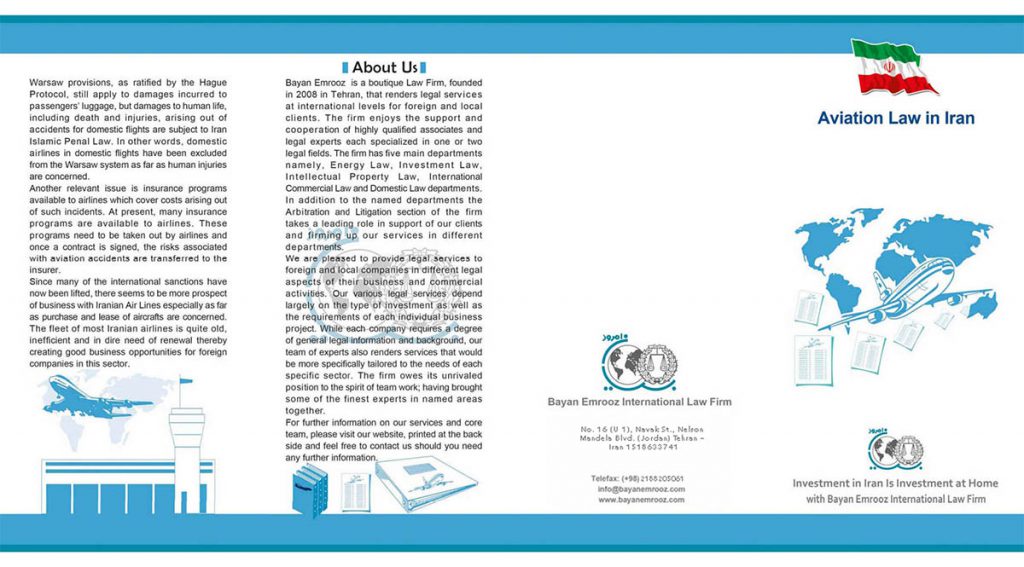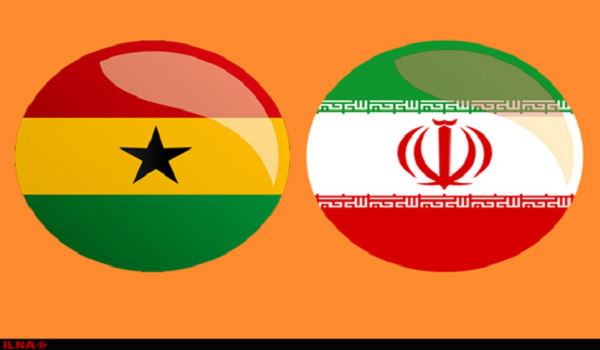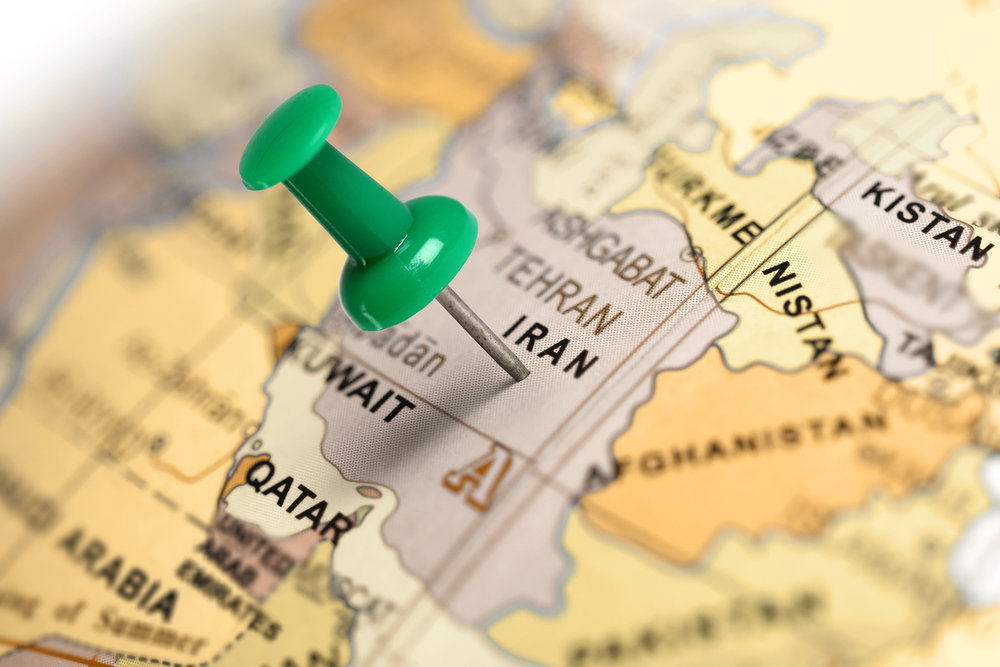Introduction:
Iran stands at the crossroad of unique civilizations of a bygone era and is the cradle of literature & archaeological sites with a rich culture. Today, Iran has a global reputation as one of the most important oil & gas producing countries in the world. As a wealthy state, Iran has various mineral deposits including the largest copper deposits. Iran’s potential in agriculture is immense; the diverse climatic conditions allow dry farm products to be produced as well as livestock, fish and other seafood from the Persian Gulf and Caspian Sea.
Commercial & Company Law:
The major source of commercial law today is the Commercial Code of 1933 which was inspired by the Napoleonic Code of Commerce. However, after two decades of various attempts, the new Commercial Code of Iran was ratified by the Islamic Consultative Assembly (parliament) in April 2014 waiting for consideration of Guardian Council in order to get approval for enforcement. While the Code of 1933 contains articles relating to commercial transactions, merchants, carriage, commercial instruments, company and bankruptcy law, the new Code look into more up to date and modern economic and business structures. As for Company law, the major source for registration is the regulations that are ratified by the government and considering new developments for drawing foreign trade, registration of foreign companies with 100% ownership are allowed in addition to the possibility of registration of foreign branch and representative offices within the territory of Iran.
Contracts Law:
Different types of contracts have been defined under the Sharia rules, as the major source of Iranian laws that are established under provisions of Civil Code of Iran (CCI). CCI plays a major role in defining a wide scope of contractual relationships in the society including sale, rental and attorneyship contracts, family law and inheritance. With regards to contracts, Article 10 of CCI embodies the principle of freedom of contracts under which conclusion of any type of contract which is not against the law is possible. Since most of the defined contracts under the CCI are conventional, this provision opens an unending route for conclusion of new and modern types of agreements that are not listed in Sharia.
Foreign Investment:
In addition to the old Commercial Code of Iran, for the purpose of attraction of the foreign investors, the law on “Attraction and Protection of Foreign Investment” (FIPPA) was ratified in 2002. In light of FIPPA, the foreign investors will be treated the same as the Iranian nationals with respect to various issues and will receive protection for entrance and exit of capital. As to other aspects of the business including ownership of property, employment and residency, considerable preferential treatment is guaranteed.
Intellectual Property Law:
Regarding the intellectual property law, Iran is attempting to be up to date. The country is a signatory to the Paris Convention concerning industrial property. The protection of copyright and the Author’s, Collectors as well as Artists Rights, are predicted by the law of 1970. Moreover, in 2002, Iran has adhered to the Convention of World Intellectual Property Organization (WIPO), as well as Madrid Agreement and Protocol concerning the international registration of marks (Madrid system) (2003). The new law concerning the registration of Patents, Industrial Designs and Trademarks was enacted in 2009. This law has been modeled on WIPO Draft Act.
Electronic Commercial Law:
The Electronic Commerce Law of Iran was ratified in January 2004 based on the UNCITRAL Model law. Further to this law, the commercial operation through online systems has been regulated. Today the startups, online shops and e-commerce holdings, by getting permission and licenses from required authorities and the symbol of electronic trust (e -Namad) from the Center of Development of Electronic Commerce of Iran, are allowed to operate and develop their online business. The electronic signature is another feature that is growing to be recognized and required for many online transactions and submission including tax declarations and filing before judiciary. With respect to e-commerce, Iran is witnessing the presence of foreign and major companies which are professional in online business, while the protecting regulations for this type of business are also growing under the Iranian legislation.
Arbitration:
As for arbitration, Iran has taken major steps by enacting the International Commercial Arbitration Act in 1998, which was heavily inspired by the UNCITRAL model law on international commercial arbitration. Iran has also joined the New York Convention on Recognition and Enforcement of Foreign Arbitral Awards in 2002 which opened a new gate for the foreign investors who were reluctant to leave the fate of their contractual relationships in the hands of judiciary. From a local perspective, arbitration law in Iran derives from a few articles in the Procedural Civil Code. Parties to a dispute may instead of bringing an action in the courts, refer the dispute to arbitration subject to the existence of agreement. Arbitration award is binding and may be enforced by the competent court. Grounds for refusal are narrow and the court does not have the authority to substitute its decision on the merits for the decision of the arbitral tribunal.
Labor Law:
The first Labor Law was approved in 1949 and later replaced in 1991. This law, forms the cornerstone of labor legislation in Iran concerning the employer-employee relationship. Like other labor laws, this law has been drafted to protect the rights of employees against the employer. Iran has also been a member of the International Labor Organization (ILO) since 1949.
Free Zones:
Investment and business activities in the free zones of Iran (e.g. Kish, Qeshm in the south and Anzali port in the north) bring upon substantial preferences with respect to company registration, tax exemption, residency and entrance permit. The southern zones are also close to the international ports of UAE that are the connecting point to Western world.
In conclusion:
Future prospects at present, Iran is moving towards economic growth and the government is encouraging foreign and national investment in private sectors. It is quite clear that economic security and flow of investment are prerequisite for economic growth and for overcoming the country’s economic problems caused by international sanctions imposed on Iran. While the global business market is waiting for sanctions to be left, international companies are fact-finding, meeting with potential local partners and jockeying for positions should an end to sanctions open the isolated economy. They are drawn by what could become the largest market in the Middle East, with nearly 80 million people, the majority of whom are under 30, well-educated and tech-savvy, and by the country’s energy potential.
Bayan Emrooz is an International Law Firm, founded in 2008 in Tehran, aims to provide legal services to its clients at international standards. Our major goal and approach is to promote a culture of legal consultation in business activities. We create a collaborative environment that benefits from sharing experiences, ideas and unique qualities that each of our lawyers bring to the firm. We are pleased to provide legal services to foreign and local companies in different legal aspects of their business and commercial activities. Our various legal services depend largely on the type of investment as well as the requirements of each individual business project. Our services are provided by our qualified team specialized not only in foreign investment but also business engagements in various sectors. While each company requires a degree of general legal information and background (including legal services on corporate law and registration, employment and business management, trademark and IP protection and investment under FIPPA License), our team of experts also renders services that would be more specifically tailored to the needs of each specific sector. Such services include legal services for drafting, finalization and execution of different contracts, corporate registration, trademark and IP protection, employment and labor law concerns, foreign investment under FIPPA license, arbitration and mediation. For further information on our services and core team, please visit our website and feel free to contact us should you need any further information.














I have been reading out a few of your articles and i can claim pretty nice stuff. I will surely bookmark your website.